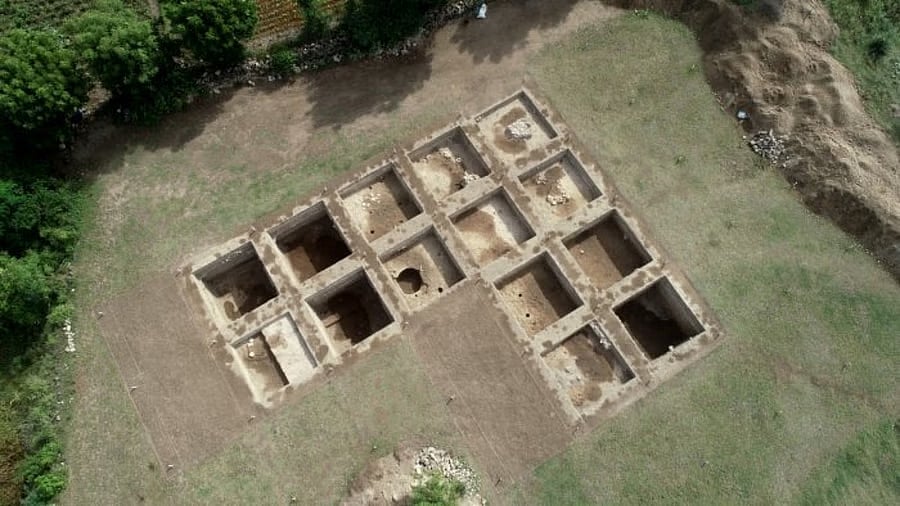
The Keeladi site.
Credit: TNSDA
Chennai: Under fire in Tamil Nadu, the Archaeological Survey of India (ASI) on Thursday termed it a “figment of imagination” that the agency was “uninterested” in publishing the report on Keeladi written by Superintending Archaeologist K Amarnath Ramakrishna.
Last week, the ASI asked Ramakrishna, who oversaw the excavations between 2014 and 2016, to “resubmit” his 982-page report on the first two phases of excavation in the Sangam Era site, after making necessary corrections suggested by two experts who vetted the document.
In the report submitted to the ASI in January 2023, Ramakrishna relied on the Accelerator Mass Spectrometry (AMS) dating of 23 artefacts, which established their age to be 300 CE to arrive at the expanded chronological sequence of Keeladi to be between the 8th century BCE to 3rd century CE.
The ASI’s decision to ask Ramakrishna to rework the report triggered a massive controversy in Tamil Nadu, with political parties alleging that the BJP-led Union government was behind the move. They added that the BJP does not want the findings to come out and is deploying such tactics to delay the report's release.
Rejecting the criticism, the ASI said it regularly publishes the reports of sites excavated, and they are sent to various subject experts, who are requested to vet the reports for publication.
“Various alterations, as suggested by the subject experts, are carried out by the excavators and resubmitted finally for publication. These are then published as Memoirs of the Archaeological Survey of India (MASI). The same procedure was adopted in the case of the Keeladi report,” the ASI said on Thursday.
It said Ramakrishna was communicated the experts' suggestions for making necessary corrections in his draft report, but he has not carried out the corrections to date.
“That the ASI is uninterested in publication of the Keeladi report is a figment of imagination which aims purposefully to paint the department in bad colours,” the statement added.
Hemasagar A Naik, Director (EE), ASI, told Ramakrishna that the periods mentioned require proper nomenclatures or re-orientation, and the time bracket of 8th century BCE to 5th century BCE requires “concrete justification.”
In his response sent on May 23, Ramakrishna, who is now Director (Antiquities), defended his report, stating that the chronological sequence of Keeladi has been clearly explained in the voluminous report. It is reliably learnt that Ramakrishna has stopped short of making it clear that he will not rework the report and has informed the ASI that the agency has already accepted the nomenclature of the changes in the period.
Ramakrishna’s tenure as the in-charge of Keeladi was mired in a row after he was abruptly transferred to Assam in 2017, and his successor claimed that there were no “significant findings” in the third phase. However, the Madurai Bench of the Madras High Court intervened and asked the Tamil Nadu State Department of Archaeology (TNSDA) to take over the excavations, which will enter the 11th phase this June.